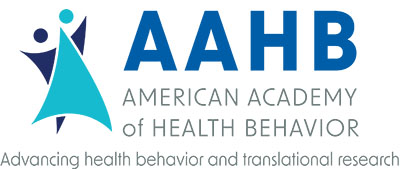Speaker Profiles 2019 |
Valarie Blue Bird Jernigan, DrPH, MPH University of Oklahoma Health Sciences Center, College of Public Health Valarie Blue Bird Jernigan is a community-based participatory researcher, trained in intervention science, with the goal of combining research with action for social change. Dr. Jernigan received her doctorate in public health from the University of California, Berkeley, and completed a postdoctoral fellowship in cardiovascular disease prevention at Stanford University, where she also completed a degree in documentary filmmaking. She is the Principal Investigator of four National Institute of Health-funded R01 studies aimed to improve indigenous food environments through policy and system interventions including "THRIVE," a randomized trial of healthy makeovers in tribally owned convenience stores and “FRESH,” a food sovereignty and community gardening intervention with Osage Nation. Dr. Jernigan is the Director of the Center for Indigenous Research and Policy at Oklahoma State University where she is a Professor of Public Health. Valarie is a citizen of the Choctaw Nation of Oklahoma. Presentation title: Developing Culturally Grounded Interventions with Indigenous Populations Guided by Indigenous Ways of Knowing Learning objectives: 1) Identify examples of Indigenous Ways of Knowing 2) Describe the application of Indigenous Ways of Knowing in intervention development 3) Describe differences between evidence-based interventions and interventions guided by Indigenous Ways of Knowing
Paul Branscum PhD, RD Associate Professor Dr. Paul Branscum is an Associate Professor of Public Health in the Department of Kinesiology & Health at Miami University, in Oxford, OH. Dr. Branscum is a registered dietitian by initial training, earning his B.S. in Human Nutrition (2005) and M.S. in Nutrition (2008) at The Ohio State University. He then earned his Ph.D. in Health Promotion & Education from the University of Cincinnati in 2011. Dr. Branscum has published over 70 peer-reviewed journal articles, and his main research focus has been in the area of nutrition and childhood obesity prevention; specifically, predicting and changing obesogenic health behaviors among children, parents and young adults. Health behaviors he has studied includes: snacking behaviors, physical activity, sedentary behaviors, sleep, and parental monitoring behaviors centered around sugar sweetened beverage consumption and fruit and vegetable intake. Additionally, his research focuses on planning, implementing and evaluating innovative theory-based obesity prevention programs. He is also interested in the area of Health Literacy (specifically digital health literacy) and uses quantitative and qualitative methods to understand how individuals search for, and find, health related information on the Internet. He is currently serving as a Senior Co-Chair of the Theories and Techniques of Behavior Change special interest group of the Society for Behavioral Medicine (SBM). Recently, his research has focused on methods to better operationalize psychosocial constructs used in theories of behavior change (i.e. perceived norms, and perceived behavioral control/self-efficacy), to be better able to evaluate them in research and in practice. Presentation Title: Innovations in the Reasoned Action Approach: Applications and Future Research Directions Learning Objectives: 1. By the end of the presentation, participants will be able to differentiate between formative and reflective measures within the Reasoned Action Approach.2. By the end of the presentation, participants will be able to discuss how to measure determinants of attitudes, perceived norms, and perceived behavioral control using a value-expectancy framework. 3. By the end of the presentation, participants will be able to create multi-behavioral theoretical models using the Reasoned Action Approach.
Florence J Breslin, MS, CCRP Laureate Institute for Brain Research | LIBR · ABCD Coordinator Florence Breslin, MS, CCRP is a co-Investigator at the Laureate Institute for Brain Research site of the Adolescent Brain Cognitive Development (ABCD) study. Her research interest began in pre-clinical addiction research at the University of Virginia Center for Addition Education. She then moved into adult human neuroimaging research at the Center for Health Behavior Neuroscience at the University of Kansas Medical Center. The ABCD study allowed her to pursue her interests of brain development and function during addiction. Under her leadership the LIBR ABCD site was awarded an increase from 525 to 740 subjects, resulting in a $1.4million increase. In 2017 Florence was award the ABCD Staff Member of the Year by Nora Volkow, MD, Directory of the National Institute on Drug Abuse and George Koob, Ph.D., Directory of the National Institute on Alcohol Abuse and Alcoholism for her contributions to ABCD both at LIBR and in the consortium. Her current research focuses on contextual factors, such as parenting and screen time, that influence adolescent brain development and mental health. Presentation Title: Measuring multiple behaviors in adolescents: The ABCD study Learning Objectives: 1. Describe the ABCD Sample 2. Review of active data collection on screen media and substance use 3. Discus the supplement value of passive data collection, eg. FitBit
Christina Chambers, PhD, MPH School of Medicine University of California San Diego Dr. Christina Chambers is a Professor in the School of Medicine at UC San Diego. She is Co-Director of the Center for Better Beginnings, Program Director of MotherToBaby, a service providing evidence-based information on exposures during pregnancy and lactation, and is Program Director of Mommy’s Milk, a human milk biorepository for research. Dr. Chambers leads a number of national and international complex longitudinal cohort studies and clinical trials of prenatal exposures and child health and development. Her research has been instrumental in identifying previously unrecognized human teratogens, as well as ruling out substantial risk for medications and vaccines. Presentation Title: Can we develop a biomarker of future neurobehavioral deficits due to prenatal exposure to alcohol? Learning Objectives:
Julie M. Croff, PhD, MPH Executive Director, Center for Wellness & Recovery Associate Professor, Rural Health Project Director, FAB Study Oklahoma State University-Center for Health Sciences Dr. Julie Croff is an Associate Professor of Rural Health and the Executive Director of the Center for Wellness & Recovery (CWR). She is currently the Principal Investigator of FAB, an NIH-funded project that seeks to explore the interaction of behavior and physiology linked to improved health outcomes for tomorrow’s mothers. As part of her role at CWR, she is the Project Director of an award to provide opioid use disorder education and prevention to four of Oklahoma’s hardest hit communities, through funding from the Oklahoma Department of Health through the Centers for Disease Control and Prevention. She is also Project Director of a SAMHSA grant to provide waiver training for medication-assisted treatment to second year residents at OSU-CHS. Dr. Croff was the Founding Director of the MPH program at Oklahoma State University Center for Health Sciences and has published widely in the area of alcohol and other drugs, across multiple populations, including college students, Native Americans, and gay and bisexual men. She received her PhD in Public Health, with emphasis on health behavior, from the joint program at the University of California San Diego and San Diego State University. She received her Master of Public Health with emphasis on Social and Behavioral Sciences from Boston University. Presentation Title: Multi-modal approaches to measuring behavior in teenagers and young adults Learning Objectives:
Rosa Gonzalez-Guarda, PhD, MPH, RN, CPH, FAAN Duke University School of Nursing Rosa Gonzalez-Guarda, PhD, MPH, RN, CPH, FAAN, is Associate Professor at Duke University School of Nursing and the Faculty Lead for the Population Health Research Area of Excellence for the school’s Center for Nursing Research. She also serves as the Co-Director of the Community Engagement Core for Duke’s Clinical Translational Science Institute. Her research focuses on describing the intersection of intimate partner violence, substance abuse, HIV and mental health among Latinos in the U.S. and the development of culturally-tailored interventions to address these. She uses a syndemic orientation, mixed methods, and community engaged strategies to address these areas of interest. She is currently the principal investigator of a longitudinal study funded by the National Institute on Minority Health and Health Disparities at the National Institutes of Health (1 R01 MD012249-01) that will help identify the impact that acculturation stress and resilience have on biobehavioral and mental health outcomes among young adult Latino immigrants over time. She is also currently the principal investigator of a Hillman Foundation Emergent Innovation Award that will develop a smartphone application that aims to prevent intimate partner violence among young adult Latino immigrants. Dr. Gonzalez-Guarda is committed to building and nurturing the next generation of nurses to promote health equity. She was one of the five nurses who served on the Institute of Medicine Committee that produced the landmark Future of Nursing Report (2010), was appointed by the Secretary of Health and Human Services to serve on the National Advisory Council on Nursing Education and Practice (NACNEP, 2012-2016), and has been the principal investigator of various programs that promote health disparities research careers for underrepresented minority nurses and students from various health professions. Dr. Gonzalez-Guarda is an alumna of the Substance Abuse Mental Health Services Administration Minority Fellowship Program at the American Nurses Association, the Robert Wood Johnson Foundation Nurse Faculty Scholars Program, and is a fellow of the American Academy of Nursing. Presentation Title: The influence of acculturation stress and resilience on the substance abuse, violence, HIV and depression syndemic among Latino immigrants. Learning Objectives: 1. Discuss the latino health paradox as it relates to the substance abuse, violence, HIV and depression syndemic2. Identify common risk and protective factors for this syndemic at the individual, relationship, community and societal levels 3. Discuss the influence of acculturation stress and resilience across levels of influence on the substance abuse, violence, HIV and depression syndemic 4. Identify opportunities for research, practice, and policy addressing acculturation stress and resilience among Latino immigrants in the U.S.
Joseph G. Grzywacz, Ph.D. Department Chair & Norejane Hendrickson Professor College of Human SciencesFlorida State University Joseph “Joe” G. Grzywacz is the Department Chair and Norejane Hendrickson Professor of Family and Child Sciences at Florida State University. His research focuses on the health-related consequences of the “organization of work,” particularly how everyday work and family life create or exaggerate health inequalities. This research, originally conceived after leading a comprehensive worksite wellness program across multiple states for over five years, has been continuously supported by the National Institutes of Health (NIH) for the past 17 years. Grzywacz has served as the Principal Investigator on grants from the Eunice Kennedy Shriver National Institute for Child Health and Human Development (NICHD), the National Institute on Aging (NIA), the National Institute on Alcohol Abuse and Alcoholism (NIAAA), and the National Institute for Occupational Safety and Health (NIOSH). He is the architect of an ongoing P20 project funded by the National Institute for General Medical Sciences (NIGMS), and is currently running several extramurally funded projects in the U.S. and abroad. Grzywacz has published over 225 peer-reviewed articles, placing them in the flagship discipline-specific and interdisciplinary journals like American Journal of Health Behavior, American Journal of Public Health, Health Education and Behavior, Journal of Health and Social Behavior, Social Science & Medicine, Journal of Occupational Health Psychology, Journal of Occupational and Environmental Medicine, and the Journal of Marriage and Family. Presentation Title: Multiple Health Behavior Change: A Developmental and Familial Perspective Learning Objectives: By the conclusion of the presentation participants will be able to:
Amy E. Harley, PhD, MPH, RD Associate Professor, Joseph J. Zilber School of Public Health, UW-Milwaukee Scientist, Center for Urban Population Health Honorary Fellow, UW-Madison School of Medicine and Public Health Dr. Amy Harley is an Associate Professor at the Zilber School of Public Health at University of Wisconsin, Milwaukee. She is a Registered Dietitian and trained in public health, specifically in community health education and health promotion/behavior change. Her research program incorporates both observational and intervention methods to determine effective health promotion efforts that account for social context including neighborhood and social network factors. She has developed research partnerships with organizations in Milwaukee serving low-income residents and racial/ethnic minority communities. Dr. Harley has particular expertise in: Behavioral theory, physical activity participation, and healthy eating; Community-based participatory research with projects across the community-engaged research (CEnR) spectrum; and qualitative research methods and mixed-methods designs. Presentation Title: Social contextual predictors of multiple health behavior change Learning Objectives:
Bonnie Spring, PhD, ABPP Professor of Preventive Medicine, Psychology, Psychiatry, & Public Health Director, Center for Behavior and Health, Institute for Public Health & Medicine Northwestern University Feinberg School of Medicine Dr. Spring is Professor of Preventive Medicine, Psychology, Psychiatry, and Public Health at Northwestern University and Director of its Center for Behavior and Health - Institute for Public Health and Medicine. She also serves as Team Science Director for NUCATS, Northwestern’s CTSI, and Program Co-Leader for Cancer Prevention at the Lurie Comprehensive Cancer Center. She studies technology-supported interventions to promote healthy change in multiple chronic disease risk behaviors (particularly poor quality diet, overeating, physical inactivity, and smoking) and her research has been funded continuously for more than 30 years. Current mHealth trials by her group involve the use of wearable sensors to predict and pre-empt relapse to smoking, MOST factorial, SMART, and JITAI designs to optimize treatment for obesity, and a cluster randomized trial to prevent loss of cardiovascular health among college students. A past president of the Society for Behavioral Medicine (SBM), she is a recipient of SBM’s Distinguished Research Mentor, Research to Practice Translation, and Distinguished Leadership awards, and is founding editor of its journal, Translational Behavioral Medicine: Practice, Policy, Research. A winner of The Obesity Society’s e-Health Pioneer Award and past chair of American Heart Association’s Behavior Change Committee, she is immediate past chair of the NIH Psychosocial Risk and Disease Prevention standing study section. A past chair of APA’s Board of Scientific Affairs, she is recipient of an APA Presidential Citation for Innovative Research and Leadership in Health Psychology and Vision in Incorporating Technology into Practice and Training. She has served as primary mentor for 33 individual training awards and is PI of an NCI T32 postdoctoral training grant. Her NIH-funded learning modules on the science of team science (www.teamscience.net) and on evidence-based practice (www.ebbp.org) are freely available online and have been used by more than 50,000 learners worldwide. Presentation Title: State of the Science in Intervening for Multiple Health Behavior Change Learning objectives: 1. Explain what is meant by a risk behavior bundle and give an example of a prevalent one. 2. Give one example of a mechanism or mediator that could help to explain risk behavior bundles 3. Describe whether intervening on several risk behaviors simultaneously is more or less effective than intervening on them sequentially? |










.jpg)